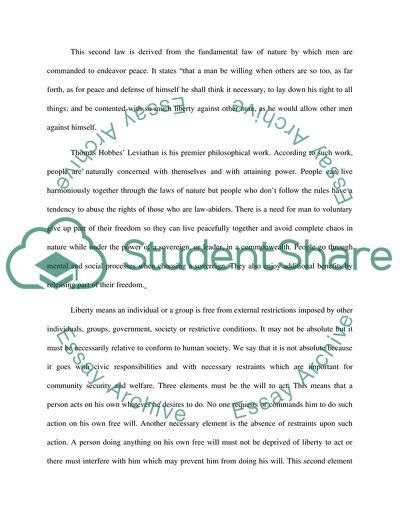Cite this document
(Free Man in Under Hobbes' Leviathan Essay Example | Topics and Well Written Essays - 2500 words, n.d.)
Free Man in Under Hobbes' Leviathan Essay Example | Topics and Well Written Essays - 2500 words. Retrieved from https://studentshare.org/literature/1746060-under-hobbes-leviathan-in-what-sense-if-any-can-it-be-said-that-man-is-free
Free Man in Under Hobbes' Leviathan Essay Example | Topics and Well Written Essays - 2500 words. Retrieved from https://studentshare.org/literature/1746060-under-hobbes-leviathan-in-what-sense-if-any-can-it-be-said-that-man-is-free
(Free Man in Under Hobbes' Leviathan Essay Example | Topics and Well Written Essays - 2500 Words)
Free Man in Under Hobbes' Leviathan Essay Example | Topics and Well Written Essays - 2500 Words. https://studentshare.org/literature/1746060-under-hobbes-leviathan-in-what-sense-if-any-can-it-be-said-that-man-is-free.
Free Man in Under Hobbes' Leviathan Essay Example | Topics and Well Written Essays - 2500 Words. https://studentshare.org/literature/1746060-under-hobbes-leviathan-in-what-sense-if-any-can-it-be-said-that-man-is-free.
“Free Man in Under Hobbes' Leviathan Essay Example | Topics and Well Written Essays - 2500 Words”, n.d. https://studentshare.org/literature/1746060-under-hobbes-leviathan-in-what-sense-if-any-can-it-be-said-that-man-is-free.


